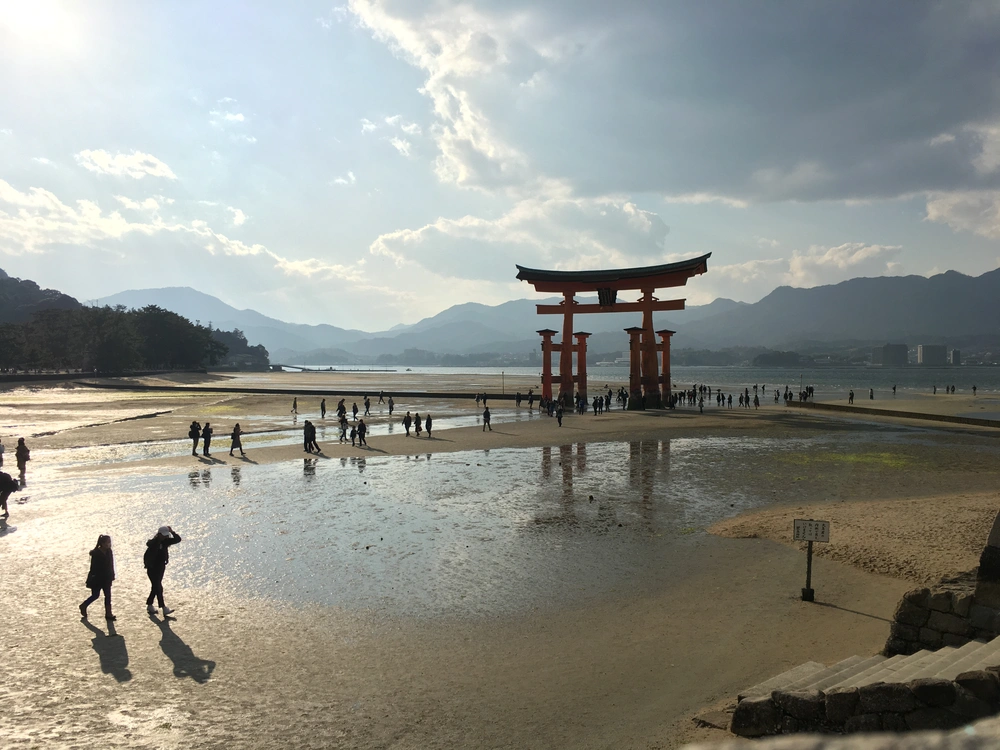
Two U of I students from distinct sides of the planet share the same goal after spending 2016-17 in the Year-in-Japan Program: to return to Japan to pursue their future graduate education and careers there.
Youyou Zhang of Nanjing, China, a Recreation, Sport and Tourism major, and Blake Adelsperger, a senior linguistics major from Streamwood, Ill., both spent 2016-17 at Konan University, in Kobe, a city of 1.5 million people, located in central Japan.
The Year-in-Japan Program offers advanced undergraduates the opportunity to spend a Fall or Spring Semester or an academic year developing Japanese language skills and expanding their knowledge of Japan through a variety of courses.
Established in 1976 on the campus of Konan University, the program is administered by the Department of East Asian Languages and Cultures at the U of I for a consortium of American universities that includes the University of Arizona, the University of Hawaii-Manoa, and the University of Pittsburgh.
Youyou, who arrived in Kobe In September 2016 and stayed until late May 2017, said she enjoyed her year there and would have liked to have stayed to learn more about the country. Blake also arrived in the first week of September and stayed for an additional month on his own. “I didn’t want to leave!” he exclaimed, laughing.
The program is housed in the Konan International Exchange Center (KIEC) of Konan University, a small liberal arts university of 10,000 students in a suburban district of Kobe. It has an on-site Resident Director, a faculty member from one of the consortium universities who also teaches one course each semester and manages academic, student, and administrative matters for the consortium.
“Konan was such a great place,” Blake said. “The campus is extremely charming and so is the area it's located in. As for the city, he responded, “Kobe was magical right from the get-go. It has everything you want, from quiet little suburbs that have charm and cozy cafes, to a bustling downtown area.”
In addition to taking classes, students can also live with host families and experience study tours, which occur for two to three days at various historical sites.
Youyou lived with a host mother and father. “My host mother helped me review my speech script before the Japanese speech contest in the spring,” she said. “They engaged me in many traditional events and took me to local restaurants,” and, “they are the most warmhearted people I have met in my life.”
Blake echoed that sentiment by saying that his host family, the Hashimotos, “was made up of probably some of the kindest people on this Earth”: Ayaka (the mother), Tomohiro (the father), and their son Kouta, who was 12 during Adelsperger’s stay. “Living with a host family was absolutely one of the best choices that I could have made for my Japanese language, without a doubt,” he said.
Youyou and Blake also loved the study tours. They went on the same trip—to Koya-san in Wakayama Prefecture, Sanuki in Kagawa Prefecture, and Hiroshima the city. “I got to use the Japanese that I have learned from class to communicate with Japanese people,” said Youyou. “I also learned about different cultures in different areas in Japan.”
Blake added, “Koya-san was valuable for further understanding Japanese Buddhism and much of Japan's older history. At Sanuki we also had the chance to learn a lot about Japan's classical performing arts. Finally, our Hiroshima trip gave me such a desire for peace—to never see war again—and an incredibly interesting dialogue on nuclear weapons.”
They both rated their classroom experience highly as well. “My Japanese has improved a lot thanks to the Japanese classes I had at Konan University,” Youyou said. She joined the badminton and reading clubs, and took ballet lessons. “I hung out with international and Japanese students.”
“My Japanese classes were very enjoyable,” Blake said, “and the instructors are some of the kindest people I've ever met. They made it a fun experience to be in class.”
When asked what she found herself internalizing about Japanese culture, Youyou responded, “I appreciate that in Japanese culture there are many ways to express thankfulness and being considerate to others. I was influenced by observing and feeling my host family's kindness.”
On the same subject, Blake remembered, “I definitely started to pick up and internalize a lot of rules concerning behavior in public, because the society as a whole is so homogenous. That meant no loud talking in public or on trains, no eating food or drinking on trains or while walking, bowing in thanks, and many other customs.”
Youyou said she was glad she went for the full year. “I was there for a full year because I think the longer I stayed, the more I could learn about Japan. One year was a good length because I really enjoyed my time there and would love to stay even longer.”
Blake declared, “Be it travel or work—if there's a way, consider me there in the future.”